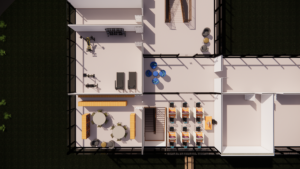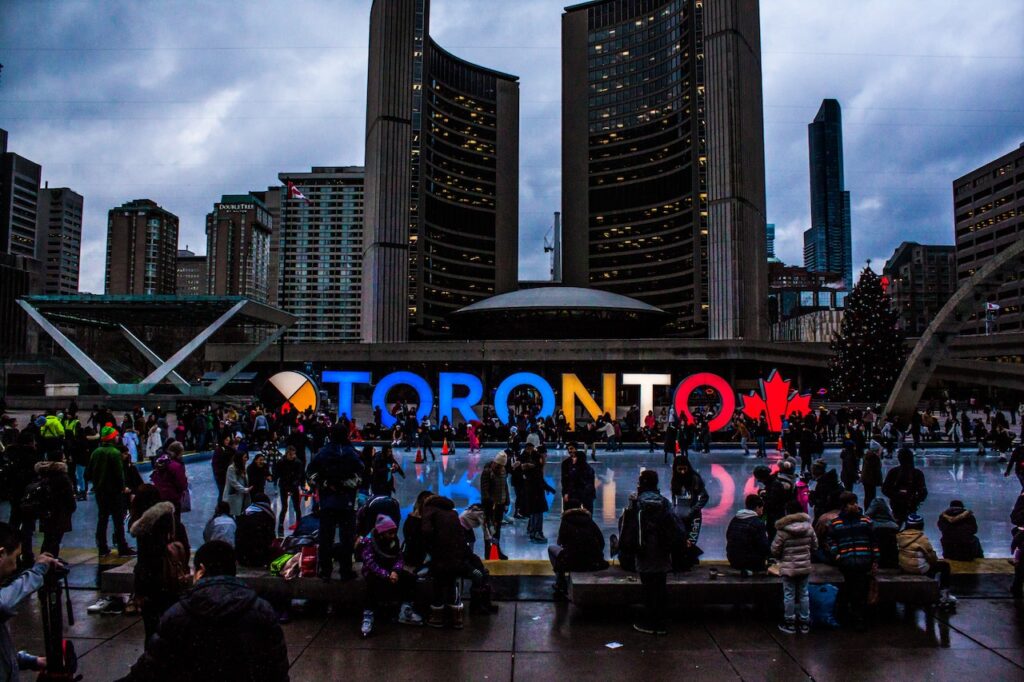How Long Does It Take To Get A Building Permit In Toronto?
Your Toronto building permit status should be a major concern, especially if you realize the building permit for your construction project is delayed. No doubt, new homes and buildings need permits. But it’s more surprising that you also need building permits for numerous types of renovation projects. Renovations that change structural supports, plumbing modifications, or adding a deck are perfect examples.
Still, building permits are vital because they ensure your project meets safety standards and complies with all regulations. Yet, the process of getting one can be lengthy, stressful, and costly. Even so, understanding the timeline for obtaining a building permit will help you effectively plan and manage your construction project.
This article will explore the process of obtaining building permits in Toronto, including the intricacies of your permit application and review process, inspection requirements, and Toronto building permit fees.
We will also discuss the average time frames for different types of permits, building permit forms, and requirements, and review other factors that may influence your permit processing time.

Understanding Toronto Building Permit Status
The City of Toronto’s Building Division administers building permits. This building permit serves the purpose of making sure all construction projects adhere to the safety standards in the Ontario Building Code and other applicable laws, regulations, and bylaws.
Toronto Building Permit Application Process
To apply for a building permit in Toronto, you need to follow a well-defined process. Here is a step-by-step guide on how to apply for a building permit:
Step 1: Determine your project’s scope.
What are the specific details of your construction project? Are you renovating, adding a secondary suite, or constructing a new building? If you are renovating, what’s your existing building or structure? All these and any additional documentation or enforcement notices will influence the scope of your project.
Step 2: Prepare building permit drawings.
A vital aspect of your building permit application is your construction drawings. You need detailed architectural, structural, plumbing, and mechanical plans. These drawings should reflect your proposed project and comply with the applicable building codes and bylaws.
Step 3: Complete the building permit application forms.
Next, you must complete building permit application forms for the City of Toronto’s building department. Some details you need to fill in these forms include property address, owner’s contact, project details, contractor information (where applicable), and more.
Step 4: Pay the building permit fees.
Now it’s time to pay all applicable building permit fees, which vary from one type of construction to the next. You’ll find this information on the city’s website. You will need to make this payment alongside your application before the documents can be reviewed.
Step 5: Submit the building permit application.
After completing the building permit application forms and attaching all relevant documents, you need to submit them to the City of Toronto’s Building Division. You can go there in person or online via the city’s permit application portal.
Step 6: The application is reviewed by the government.
After submitting your application, it undergoes a comprehensive review by the Building Division staff. This review process will include assessments from different departments like zoning, fire services, structural engineering, and others that are needed. The review will compare your drawings and structures on the ground to all relevant building codes, bylaws, and safety standards.
Step 7: Correct errors as quickly as possible.
The City of Toronto may request some corrections or additional submissions to your application. You should respond promptly to avoid prolonging the permit approval process.
Step 8: Get your permit approved.
If your application meets all the requirements, your building permit will be approved and issued. Hence, you will receive the permit, along with approved plans and other documentation that would be required to be kept on site during construction.
Step 9: Toronto Building Permit Inspection
Receiving your building permit in Toronto isn’t the end, but the beginning of bringing your project to life. Building inspectors will visit the site (upon request) to make sure that work is carried out according to the approved plans and applicable building codes. You can do so by scheduling inspections through the city’s building division. A copy of all information will also be retained in the Toronto property records department.
How long does it take to get a building permit in Toronto?
The timeline for your building permit in Toronto depends on several factors. Here’s an idea of the average time frames for the different permit types in Toronto.
Residential building permits
Residential building permits in Toronto usually require 4 to 6 weeks of processing time. This includes building permit applications for townhouses, single-family homes, and other residential construction projects.
Commercial building permits
Small Scale Commercial building permits may take 6 to 8 weeks to process. These construction permits apply to office buildings, retail spaces, industrial facilities, and more. But remember that if your project is complex, it may increase the timeline.
Complex projects and conditioning permits
If your project has complex designs or special circumstances attached, then the permit processing time may increase. Typically, these projects may take 8 to 12 weeks or more.
Expedited permit processing options
The City of Toronto offers expedited permit processing options. So depending on what the nature of your project is, you may be eligible for this avenue based on the sole discretion. To find out if your project is eligible, you need to reach out to the city’s Building Division.
Factors Affecting Permit Processing Time
Besides the type of construction permit, other factors influence your Toronto building permit status.
Complexity and scale of the construction project
Large projects often have complex designs and unique features that will need detailed review and coordination across departments. This, therefore, increases the processing time.
Completeness and accuracy of permit applications
Submitting an accurate and complete building permit application is also vital to avoid unnecessary details. Incorrect or incomplete information introduces several “back and forths’ and revisions, thereby stretching the processing time.
Seasonal variations
Peak construction periods, such as spring and summer, also mean longer building permit processing times in Toronto. This is because the majority of homeowners begin construction between May and October. Plus, public officials often choose the summer months to go on vacation. All these reduce the city’s capacity to deal with permit applications on time.
Strategies to cut down on building permit processing time in Toronto
Sometimes delays can be inevitable. But to avoid permit application delays, consider using the following tips:
Put down a plan.
Craft a realistic scope and budget for your construction plan, including sketching out your ideas, pinning design inspiration, and more. Sketch your existing and proposed layout. Fortunately, you don’t need to be an expert in SketchUp to use the tool to transfer your lofty ideas into a visual document. In fact, it is wise to engage the service of a BCIN Designer or Architect to complete the plan required for submission to the building department.
Prioritize smaller milestones.
If you have a large and complex project, consider breaking it into phases, where you stagger the submission and issuance of less complete permit applications like demolition permit for example. Then you can submit permit applications for the simple scopes, gain approval, and begin working until you receive the permit approval for the more complicated renovation.
Understand how your existing property impacts the new one.
Request a public records disclosure before you begin planning. This helps you obtain all the information you need about the property you want to build or renovate. That way, you can determine any issues that may affect your permitting process.
Plan in advance.
Plan and submit permit applications well in advance to avoid peak periods. Ideally, you should get your building permit months before you want to build.
Deal with corrections on time.
Maintain clear communications with city officials, promptly responding to any requests for additional information or revision. Plus, you should use any available resources and online tools to keep track of your Toronto building permit status.
Review your Toronto building application before submitting.
Review your plans carefully to ensure accuracy and completeness before submission. Study the Ontario building code as it applies to your construction project and other aspects of the Toronto building permit application process to avoid any potential pitfalls. You should work with a BCIN Designer who can also review your application documentation. Hiring a professional design service provider like Property Pathways to guide you through your application process so that you can avoid errors and cut down on your permit processing time. As qualifiedBCIN design Firm, our team at Property Pathways will work with you through your architectural designs to permit application, processing, and approval. In the end, you can enjoy a hassle-free approach to obtaining your building permit in Toronto.
Concluding Thoughts
Applying for a building permit is an important step in your construction project. But then you also need to know how to track and manage your Toronto building permit status.
When you follow the correct permit application process, by submitting accurate documentation and addressing any issues immediately, you increase your chances of receiving your building permit in a short time.
Remember to schedule the required inspections to meet all compliance needs during construction.
Hence, with thorough planning and adherence to the City of Toronto’s guidelines, your permit process will be efficient, so your construction can proceed smoothly and successfully.


